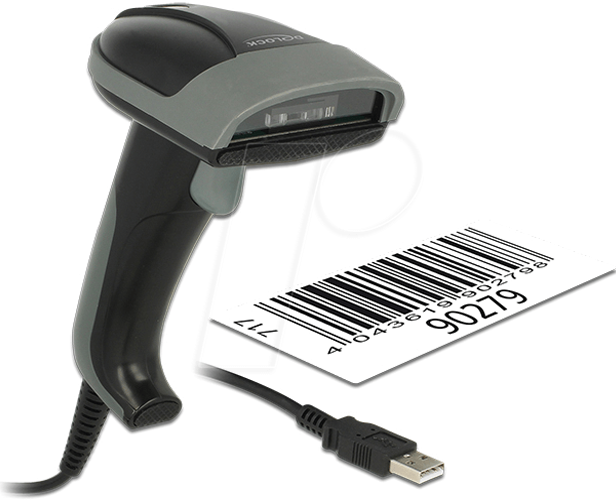Barcode Scanner

A barcode scanner, also known as a barcode reader, is a device that uses optical technology to capture and decode barcodes. It plays a vital role in various industries, including retail, logistics, healthcare, and manufacturing. Barcode scanners have revolutionized the way businesses handle inventory management, track products, and improve operational efficiency.
The basic principle behind a barcode scanner is to scan the barcode image, convert it into a digital signal, and then decode it to retrieve the encoded information. The scanner emits a beam of light that reflects off the barcode and is captured by a photosensitive sensor. The sensor converts the reflected light into an electrical signal, which is then processed by the scanner to decode the barcode.
There are different types of barcode scanners available, including handheld scanners, fixed-mount scanners, and wireless scanners. Handheld scanners are the most common and versatile, allowing users to move around and scan barcodes easily. Fixed-mount scanners, on the other hand, are designed for specific applications where the barcode is stationary, such as conveyor systems. Wireless scanners provide mobility and freedom of movement without the limitations of cords or cables.
Barcode scanners offer numerous benefits to businesses. They enhance accuracy and efficiency by eliminating manual data entry errors. With a simple scan, barcode scanners can retrieve product information, update inventory records, and track items throughout the supply chain. This saves time and improves productivity, enabling businesses to streamline their operations and serve customers more effectively.
In addition to inventory management, barcode scanners find applications in point-of-sale (POS) systems, asset tracking, and document management. They enable faster checkout processes at retail stores, reduce errors in shipping and receiving, and enhance data accuracy in various administrative tasks.
Barcode scanners are compatible with various barcode types, including UPC (Universal Product Code), EAN (European Article Number), QR codes, and Data Matrix codes. This versatility allows businesses to work with diverse barcode formats and adapt to industry standards.
The selection of an appropriate barcode scanner relies on the unique requirements of your company. Factors to consider include the type of barcodes you will be scanning, the environment in which the scanner will be used, connectivity options, and the required scanning range. It's essential to select a barcode scanner that integrates seamlessly with your existing systems and provides reliable performance.
In conclusion, barcode scanners have become indispensable tools in modern business operations. They streamline processes, improve accuracy, and enhance productivity. By investing in a high-quality barcode scanner, businesses can unlock the full potential of barcode technology and gain a competitive edge in today's fast-paced marketplace.
See if FincoApp fits your needs ?
Try Risk Free 7-Days free trial. No upsells and no complicated plans.
Quick Support
Get in Touch Today!
Connect with Us Today: Reach Out and Start a Conversation